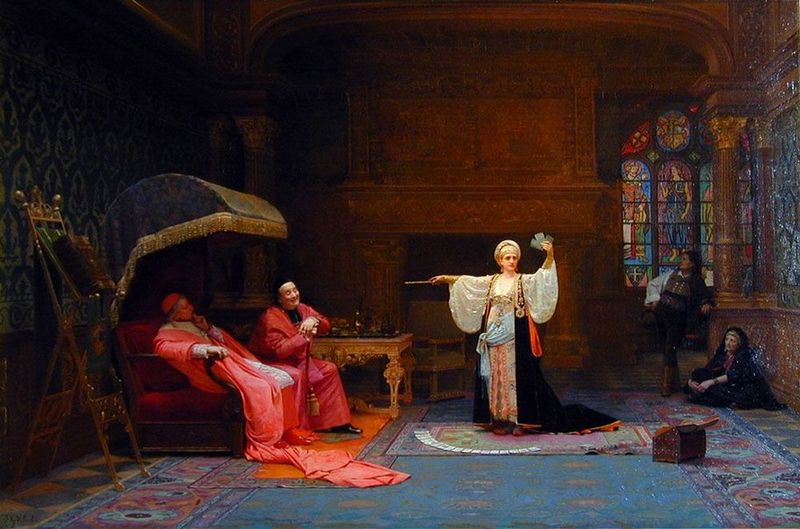Sorcerer, Character Concepts
The Quintessential Wizard
Author Mike Mearls
Publisher Mongoose Publishing
Publish date 2002
Sorcerer, Character Concepts:
Fortune Teller
Wandering the lands, usually in a rickety wagon festooned with colourful banners, fetishes, and other mystical-looking trinkets, fortune tellers ply their trade among peasants, serfs, and other commoners. They offer glimpses into the future, using tarot cards and similar means of divination to predict harvest yields, grant advice in love and business, and other aspects of the days to come. Many fortune tellers are frauds and charlatans, but a few know enough magic to attempt a simple Augury or similar spell. In addition to predictions (whether backed by magic or a good act), fortune tellers often also sell potions, elixirs, good luck charms, and other trinkets. Though their wares are rarely authentic, superstitious commoners take comfort in owning them.
Adventuring: On adventures, fortune tellers use their experience in artful deception to smooth over misunderstandings with others and avoid other social obstacles. The legitimate fortune tellers, those with real magical skills, use their magic to detect hidden items, glimpse into an expedition’s future, and provide information and support for their comrades. Many fortune tellers who master the sorcerer’s arts grow bored of bilking peasants and desire something more. They find it difficult to convince a conventional sorcerer tutor or academy that their initial training is at all valid. Thus, they take to adventure, seeking to expand their skills through practice.
Role-Playing: While adventuring fortune tellers spurn their previous life, they remain a devious, scheming lot. To a fortune teller, a quick lie and smile are the best solutions to most problems, such as a peasant angry that the potion of love you just sold him has caused all the sows in town to follow him around. Thus, fortune tellers tend to be affable, talkative, and glib. Others, especially those who see their duties and Profession as a legitimate, important service, are quiet and reserved. They see all, carefully watching their environment, and take care to speak only when they have something important to say. To these fortune tellers, the story of the future is written in the present, but only a calm, reflective mind can read it.
Bonuses: If the fortune teller has access to his focus, such as a tarot deck, divination sticks, or some other prop, and spends one minute carefully reading the signs, portents, and omens, he may cast any divination spell at +1 caster level. In addition, he may use the spells from the divine spellcaster Knowledge domain as though they were arcane spells. The fortune teller does not automatically gain these spells in his books, but gains the option to scribe them from scrolls or add them to his books as per standard arcane spells. The fortune teller may add these spells to his spellbooks and prepare them just like any other spells from the sorcerer/wizard lists. The fortune teller also gains Bluff and Perform as class skills. When magic can’t predict the future, a few dramatic lies quite nicely fill the gap. Many inexperienced fortune tellers rely exclusively on charm and convincing lies to ply their craft.
Penalties: The fortune teller hails from a slightly different background from the traditional sorcerer. He typically learns his magic from an older, more experienced sorcerer who follows this path. After a few years spent fetching water, lugging the fortune teller’s gear and props from town to town, and dealing with irate customers who didn’t hear of a future they wanted to know about, the would-be fortune teller finally learns the basics of magic. This non-traditional apprenticeship focuses more on practical concerns than the normal sorcerer’s training. fortune tellers do not gain Alchemy or Spellcraft as class skills. In addition, the first five sorcerer spells of first level they learn must be the five Divination spells, that is comprehend languages, detect secret doors, Detect Undead, identify, and True Strike.

 Buy me a coffee
Buy me a coffee